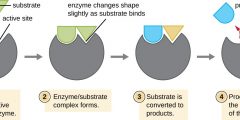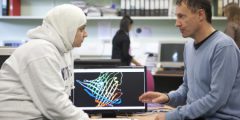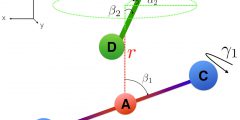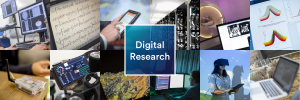CITRUS – Smarter Power
March 22, 2021
Changing Times How we are using energy is changing. Not only how the energy is generated, but where and when it is used. These changes mean that we are now pushing the limits of how we expected to use our traditional gas-fired power stations, both in terms of the longevity of these sites, the operation …
Going Greener Digitally with Enzymes
September 22, 2020
Nature is the Best Chemist Nature is the best synthetic chemist, capable of manufacturing chemicals in an energy-efficient manner and with biodegradable by-products. Millions of years of evolution have explored and optimized reaction pathways, and we would be foolish not to exploit that chemistry. Critical to this efficiency are enzymes – biological catalysts – that are not consumed by …
From Subsystem to Super System – Windows Subsystem for Linux, a Gateway to HPC
September 21, 2020
If you are seeking to leverage the full extent of computational resources for your research, you are likely to end up using a Unix machine to run your software. This is especially true if you are developing software and data analysis pipelines on High-Performance Computing (HPC) facilities, like Augusta – our own HPC facility at …
Programming – it’s all a question of style!
August 24, 2020
Today we look at the creation and potential reuse of programming code. An inordinate amount of code is created by researchers and academics at the University, but how much of it is ever reused? Is it possible to reuse it, potentially by someone from another faculty, school or department? Can it be easily understood by …
50 code challenges in 50 days
June 15, 2020
For the last few weeks, we have been posting a daily code challenge to the Research Software Network Team. Today marks fifty working days since the first challenge. It has been great to see the enthusiastic engagement with the challenges by colleagues from all stages of their careers. There have been really constructive conversations in …
COVID-19: Digital Research support for researchers
June 12, 2020
As this extended period of home working continues, our research community faces ever more challenges in maintaining research and is increasingly looking towards digital technology for support. *** Whether it’s to maintain our strong ethos of collaboration both internally and externally, collect and store data, analyse findings, or conserve and preserve outputs, researchers are having …
Locating Ancient Trees
September 25, 2019
Mapping ancient trees using high performance computing Ancient trees are ecologically, historically and culturally important, and although we know the locations of many, there are plenty more to be discovered. Victoria Nolan, a PhD candidate at the University of Nottingham is using mathematical models to produce predictions of likely suitable areas for ancient trees allowing …
The Internet of Simulations
November 22, 2017
The Digital Research Team is working with Charlie Laughton in the School of Pharmacy to explore if computational simulations could be done differently. In many fields, computational methods are used to generate a prediction as to how a system will behave over time. Typically the simulation is a small window in time into what is, …
Research Software Engineering: HPC Midlands Plus
July 31, 2017
The University is part of a consortia of Universities, which have been awarded funding from the EPSRC to provide one of a number of regional ‘Tier 2’ High Performance Computing Centres. The facility is physically located at the University of Loughborough, HPC Midlands Plus These regional facilities provide a greater computational capacity than an individual University …
Research Software Engineering for Data Driven Discovery
April 27, 2017
The Data Driven Discovery Research Priority Area includes researchers from across all five faculties of the university, all working with novel ways of interacting with data. When we were looking to test a research software engineering service, to see what value it might bring to researchers and how it might work, the RPA members were natural …












Recent Comments